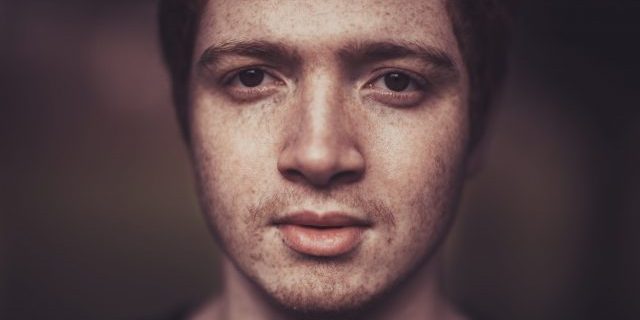
Every year, an estimated 2.1 million people under the age of 18 are arrested in the United States. Unsurprisingly, young people of color are severely overrepresented in both arrests and convictions. Many of them have a history of trauma and mental health conditions.
The juvenile justice system can have a major detrimental impact on young people’s ability to live a healthy, fulfilling life. This is one of the reasons that the Mount Sinai Adolescent Health Center provides free, confidential legal services to all of our young patients who need them.
Youth Represent, a city-wide organization that provides free legal services to over 1,000 young people in New York City every year, provides our young patients with the services they need through our medical-legal partnership. We talked to Daniel McCarey, a staff attorney at Youth Represent and the head of our medical-legal partnership, about the work that he does, why legal advocacy for young people is so essential, and why teens should know their rights.
Tell us a little bit about who you are and what you do here at the Center.
My name is Daniel McCarey. I have a lot of experience working in adolescent clinics, and my first gig after law school was doing special education law. I started at Youth Represent, working in the Center, in mid-April.
I’m the head of what’s called a medical-legal partnership. The idea is to embed an attorney or paralegal in a medical clinic to holistically address not only the patient’s medical needs, but also their legal needs.
This clinic is really cool because it provides a holistic medical approach… You have eye doctors, dental, primary care, reproductive care, and mental health services, which I think are really important. The mental health providers are where we get most of our referrals because that population has the most extensive need for legal services. Patients can get Youth Represent’s services under the same roof they get their medical care. We either take on the young person’s case, provide legal advice, or just give them general legal information.
What issues do you deal with most often?
This clinic is very unique in that it provides comprehensive services for trans youth. They get referred to us because they want to change their name to something that aligns with their gender identity. We file a name change petition in civil court, and then we represent them in front of a judge to secure a court-certified name change. That’s the first step in changing not only their name, but also changing their gender markers on IDs.
There’s also a heightened need for criminal representation, whether it’s minor infractions like pink slips or summonses, or something more serious like needing representation in criminal court itself. The Center’s patients are mostly kids of color, who are overrepresented in the criminal justice system and over policed. They have needs in family court, housing court, employment, stuff like that. We see it all. Our goal is to address as many needs as the kids have.
What made you want to do this work?
Personally, I think that this has always been the population that I’ve wanted to work with. With Youth Represent, we typically work with kids who are 16-25 years old. We know that if you have involvement in the criminal justice system during those years, it can have a significant impact on your ability to, for example, obtain employment. So these are very formative years and it’s a critical time in a young person’s life to intervene with not only the work we do here in the legal area, but also the medical area.
How can patients at the Center find you?
Our door is always open. If we’re not there, we make it clear that patients can grab our information and contact us. Even if they’re not comfortable disclosing their legal issues to any of their healthcare providers, patients can always come here. Our services are 100% free and confidential.
Do you have any words of advice or encouragement for young people?
I think the most important aspect of the work that Youth Represent and the Center does is to empower young people to advocate for themselves. That being said, it can be confusing, difficult and overwhelming for young people to advocate for themselves, particularly in criminal court. So if you’re a young person, particularly in these communities, it’s important to educate yourself about the rights that you have. The fact of the matter is that these communities are over policed, and young people’s rights can be trampled on. Attend know your rights trainings. Come here, talk to us, and we can provide guidance. But the most important thing for them to understand is that they have rights. They have power. They can advocate for themselves.
Daniel McCarey is a graduate of the City University of New York (CUNY) Law School. He is dedicated to advocating for marginalized and oppressed communities within the framework of collective liberation. Daniel has experience in a number of legal and social services including, but not limited to, special education law, criminal law, benefits, and healthcare.
The Mount Sinai Adolescent Health Center is located in New York City. It provides comprehensive, confidential, judgment free health care at no charge to over 10,000 young people every year. This column is not intended to provide medical advice, professional diagnosis, opinion, treatment or services to you or to any other individual, only general information for education purposes only.


